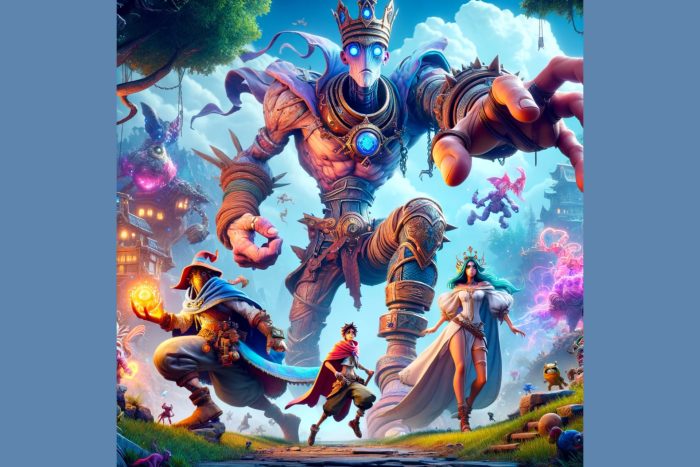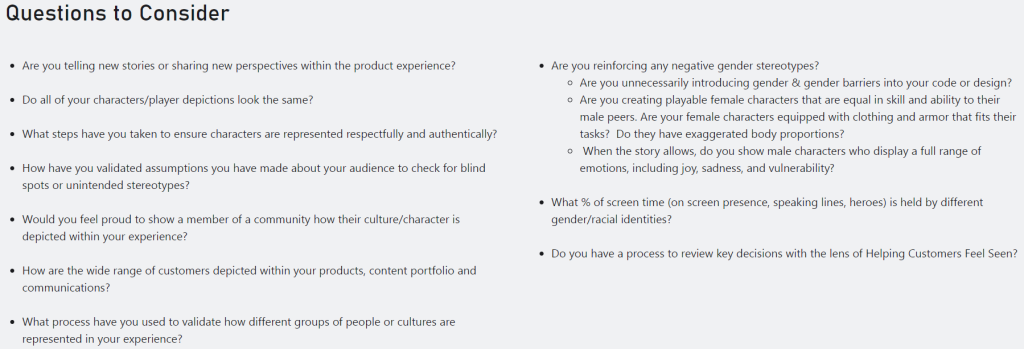Microsoft warns game devs about stereotypes & "exaggerated body proportions"
Microsoft advocates for gender equality and political correctness in games
4 min. read
Published on
Read our disclosure page to find out how can you help Windows Report sustain the editorial team Read more

If we’re honest, we all have seen ridiculously drawn characters in games that have nothing to do with reality. But should we be really concerned about this? Microsoft issued a Product Inclusion Action letter to developers warning them about stereotypes and disproportionate human traits in their games.
What is even more interesting is that Microsoft treats these issues from a business-oriented perspective. The Redmond giant references a few studies from 2021-2023, from which they concluded that people don’t play many games because they don’t represent them.
Why is Microsoft pushing devs to create politically correct games?
According to Microsoft’s letter, the U.S. is the leader in media content, with 80% created inland, but the content needs to be dedicated for the broad consumer.
Research shows that players prefer to play characters that look like them and are more likely to purchase and play experiences where they align to the characters identity.
- 57% of players in the broader gaming market didn’t play certain games because the games weren’t made for them. Over half of the global gaming market.
- 53% of developers felt diversity in storytelling should be a priority and it was ranked as the third most important factor in industry growth.
- 41% of retail consumers have shifted 10% or more of their business away from brands that do not reflect their value in diversity & inclusion.
So, the point is that the gaming industry is losing a lot of potential players and, implicitly, money because the games need characters and stories to reflect diversity.
Microsoft’s Product Inclusion Action already stirred a pretty hot discussion on X about all the arguments related to the story.
The Infinitale: Chronicles developer responded with strong arguments in favor of the game creators:
These ideologues have infiltrated, hijacked, & destroyed this medium. Videogames are an outlet of escapist fun. Nothing more. Nothing less. Can they be used to tell stories and educate? Sure, but that’s NOT their primary role.
Microsoft asks developers watch out for gender stereotypes and exaggerated body proportions

Microsoft also added some guiding questions developers should refer to when creating a game. The arguments range from moral dilemmas and politically correctness to gender equality:
Are you reinforcing any negative gender stereotypes?
- Are you unnecessarily introducing gender & gender barriers into your code or design?
- Are you creating playable female characters that are equal in skill and ability to their male peers. Are your female characters equipped with clothing and armor that fits their tasks? Do they have exaggerated body proportions?
- When the story allows, do you show male characters who display a full range of emotions, including joy, sadness, and vulnerability?
Another commenter, emphasized on the above-mentioned X thread that looks are not important in the development of a game:
I couldn’t care less if fictional women are in realistic equipment or not. Personally, as a woman who plays games, I prefer them not in hideous full suits of armor. That’s just me though. I’m also sick of it always being only how the women look that’s a problem & needs “fixing.”
This discussion goes way back. For instance, five years ago, Sony introduced censorship in their Japanese games.
A Reddit thread from seven years ago stirred the same attention about political correctness ruining the game industry.
This is a never-ending story, but you should always remember that for huge gaming hubs, the focus is and always will be profit. That also means bringing everyone to gaming and make sure they enjoy their experience so that they come for more titles. It’s one of the golden rules of business and if Microsoft want to bring Xbox to every screen, the developers will have to become more flexible and become more open to these suggestions.
Will this ruin the titles for the gamers who are already onboard? That’s also a great argument to consider and from the looks of it, the gamers are not pretty happy about the changes.
What do you think about Microsoft’s Product Inclusion Action letter? Let’s talk about this in the comments section below.








